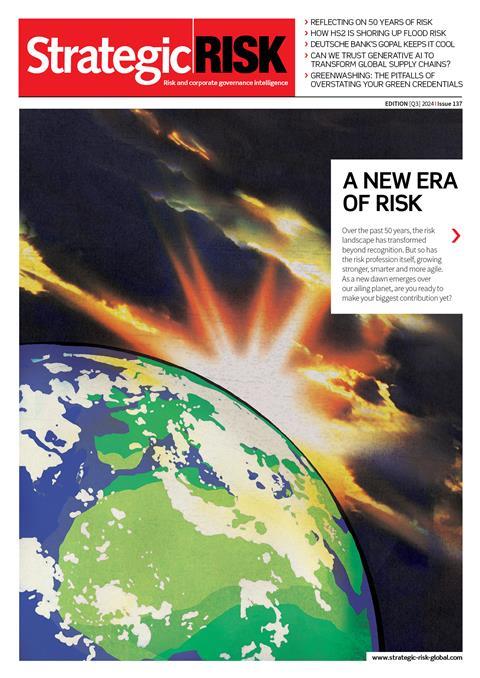Just a fifth surveyed before pandemic said firms were ’very prepared to respond to an adverse risk event’
According to the Global Board Risk Survey that Ernst & Young (EY US) conducted with 500 global board members and chief executive officers (CEOs), only 21% of board members believed their organisations were very prepared to respond to an adverse risk event from a planning, communications, recovery and resilience standpoint, before the COVID-19 outbreak.
The financial services sector felt more prepared, with 80% of directors indicating that they felt their firms were very or nearly very prepared to respond to such events.
With COVID-19 now posing critical challenges for businesses, many organisations are experiencing vulnerabilities related to their human capital, significant fluctuations in product demand and heavy supply chain disruption from the affected areas.
Unpredictable events and uncertainty related to the pandemic continue to expand the scope of risks, highlighting the heightened need for crisis management planning to build strategic, operational and financial resiliency across the business.
“COVID-19 began as a public health crisis; however, it has rapidly evolved into a significant global economic challenge as well, encompassing nearly every layer of organisations from human capital to supply chains,” says Steve Klemash, partner, Ernst & Young LLP and the EY Americas Leader of the Center for Board Matters.
“While participants responded to this survey before the COVID-19 pandemic began, it underscores the importance for organisations to be prepared for these kinds of events. Now, more than ever, it is imperative for boards and directors to adopt a new risk mindset and take a future-first risk approach so that they are prepared for even the most unpredictable issue.”
Top Risks
Nearly half of board members surveyed cite unfavorable economic conditions as the most important risk category, with those that sit on boards of US companies ranking geopolitical risks and people issues as a joint second.
Cyber attacks and data breaches are also putting immense pressure on boards, with 48% of board members overall and 69% of financial services companies’ board members believing these will more than moderately impact their businesses over the next 12 months.
Risk and Strategic Value
While nearly three-quarters of board members believe their organisation’s strategy is aligned with its risk appetite, the survey reveals opportunities to adjust this to be more future-fit and turn risk into strategic value. Less than a quarter of board members are very satisfied with their effectiveness in overseeing changes to the risk landscape and adjusting the organisation’s risk appetite accordingly.
Within the financial services sector, directors are more confident, with nearly three-quarters (71%) extremely or nearly extremely satisfied in their effectiveness in overseeing how changes to the risk landscape lead to adjustments to risk appetite.
With only 40% of board members satisfied with the management of new and emerging risks—citing talent and skill sets as the top obstacles—boards have the opportunity to challenge how the organisation’s talent strategy is enabling the transformation of enterprise risk management (ERM).




















No comments yet